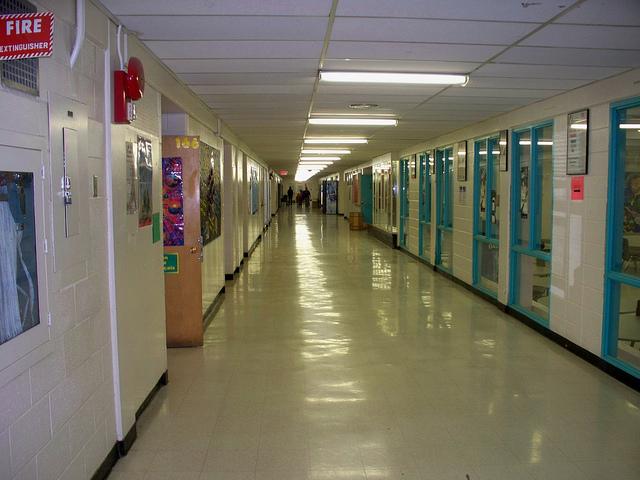Two Republicans are proposing a bill to standardize rules for gender-specific bathrooms and locker rooms in school districts across the state.
Rep. Jesse Kremer, R-Kewaskum, and Sen. Steve Nass, R-Whitewater, want to make sure all districts follow the same policy on designating a specific gender for each bathroom and locker rooms, Mike Mikalsen, Nass’ chief of staff, said.
Mikalsen said school districts have a legal responsibility to address which bathrooms are designated for males or females.
“What the bill does is it creates one statewide approach which will allow for a more equal and equitable treatment, which is that a male bathroom is going to be for males,” Mikalsen said, defining males as those who would “medically be males based on their chromosomes.”
Mikalsen said the bill aims to accommodate concerns of transgender students along with students who might be uncomfortable with transgender students in their bathroom, which might cause parents to sue the school district. He said the motivation for the bill’s creation came from both complaints from parents and the need to protect districts from litigation.
Mikaelsen noted in some places that have adopted transgender bathrooms, some “pervert” men would take advantage of the facilities and do inappropriate or illegal things.
Nass is concerned about bullying and harassment for transgender students as well, Mikaelsen said, so the bill is partly to protect them from being bullied about going in the wrong bathroom.
But Megin McDonell, interim executive director of Fair Wisconsin, said the bill prevents transgender students from using bathrooms consistent with their true gender identity, which would “out” a lot of students and lead to their being isolated and bullied at school.
“The bill claims to be an interest of safety for students, but it actually has a potential to endanger the safety of transgender students,” McDonell said.
McDonell said at the more than 60 school districts across Wisconsin that have inclusive policies toward transgender students, none have experienced instances of a person claiming to be transgender in order to harass other students.
This bill, McDonell said, would undermine the inclusive efforts those schools made. She also said claims legislators made that transgender students would be bullied less if schools had regulations against allowing them in certain bathrooms are “incorrect.”
“It doesn’t increase or improve safety for students,” McDonell said. “It singles them out and segregates them and creates an environment that’s more hostile and less safe.”
In a statement, Kremer said the bill’s purpose is to make sure every student’s dignity is respected in schools, where privacy and safety are “paramount.”
Mikalsen said Nass agrees, noting some students have privacy issues for other reasons, such as religious beliefs.
In cases of religious beliefs, Mikalsen said, teachers would give students a separate place to change or use the bathroom. Transgender students, he said, would be treated the same way, and because some of them don’t want to have to use a separate bathroom, lawmakers felt compelled to create the bill.
But UW history and gender women studies professor Finn Enke said the bill will have a negative impact on all students, not just those who identify as transgender.
Enke said students will feel like they have to be scrutinizing everyone else in “weird and inappropriate ways.”
“The bill suggests that there’s something scary about transgender students or students who don’t conform to gender norms,” Enke said. “It creates an environment of suspicion and fear.”


